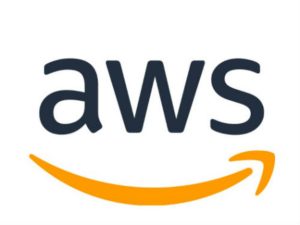Holistic data management means breaking silos to leverage data agencywide for business-focused results. At GovLoop’s online training Thursday, government and industry experts discussed why holistic data management matters and how to do it well.
Like many federal agencies, the Centers for Medicare and Medicaid Services (CMS) is composed of many different sub-organizations. To be exact, there are 25 entities, each with different budgets and operations. Centralizing and managing the data that each office owns holistically can help CMS and its components pursue a common future, said Bobby Saxon, Deputy Director of the Office of Information Technology at CMS.
CMS’s goal is when someone asks a data-related question, “you don’t get an answer – you get the answer,” Saxon said. In other words, holistic data management can provide a single source of truth.
Similarly, when Eric Ewing, Director of the Artificial Intelligence (AI) Center of Excellence (CoE) at the General Services Administration (GSA), works with other agencies to incorporate AI solutions, a holistic understanding of the agency’s data and analytics challenges is critical. And that is all to the point of serving the end user or end customer well.
“Ultimately, we at the Center of Excellence take the holistic approach. We want to make sure, from the organizational posture all the way down to technology products, we are delivering what we need for internal and external customers,” Ewing said.
Yet surely, approaching data management in this way is a change that comes with challenges. For CMS, most of the pain points are around organizational culture, not data and technologies, Saxon said.
CMS is driving toward a culture where data can be owned, used and interpreted in a way that can benefit both the component it originated in and the agency overall, Saxon added.
Another challenge is connecting data management to business or mission values. An important piece of holistic management is not only sharing data across teams but making decisions around it with a direct focus on mission value.
Instead of approaching data management by saying, “Data set X has a tremendous amount of quality issues we need to fix,” agencies should ask themselves, ‘What business or mission value does this set X bring if it were clean?'” Reverse engineering the approach to managing data produces results in a more effective way, Ewing said.
Agencies can start doing this by first trying to better understand the business problems they experience. Then, they can manage data more effectively.
There are a lot of opportunities for agencies to improve service delivery through data management. It’s an exciting time to be in this world, Ewing said, because there is a lot of great work happening around data.
“I think we see an emphasis across the federal government that data can be an extraordinarily valuable asset — and is one of the most valuable assets we have internally,” Ewing said.
Organizations can see this with the growing amount of chief data officers throughout government. But ultimately, the value of data can only be realized when it is connected to the agency mission.
“Chief data officers, chief information security officers, chief information officers — those are three separate things, but they have to be joined together, arm in arm, doing it for the business of the organization they’re part of,” said David DeVries, Director of Strategic Initiatives for State and Local Government and Education (SLED) at Commvault.
This online training was brought to you by:







Leave a Reply
You must be logged in to post a comment.